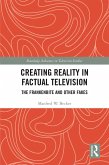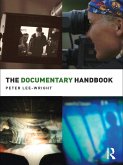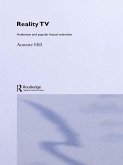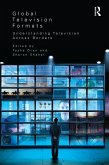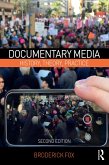The author considers how the editing of documentary television is increasingly following reality television's dictate to entertain instead of inform, how the "real" and the "truth" fall victim to the demand to "tell entertaining stories," and how editors must compromise their professional ethics as a result. Drawing on interviews with 75 North American and European editors that explore their experiences and opinions of reality and documentary television practices, and their views on their responsibilities and loyalties in the field, Creating Reality in Factual Television illuminates the real and potential ethical dilemmas of editorial decision making, the context in which decisions are made, and how editors themselves validate the editing choices to themselves and others.
Addressing a dramatic development in contemporary media ecology - the age of "alternative facts" - this book is a useful research tool for scholars and students of documentary film, media literacy, genre studies, media ethics, affect theory, and audience perception.
Dieser Download kann aus rechtlichen Gründen nur mit Rechnungsadresse in A, B, BG, CY, CZ, D, DK, EW, E, FIN, F, GR, HR, H, IRL, I, LT, L, LR, M, NL, PL, P, R, S, SLO, SK ausgeliefert werden.
-Patricia Aufderheide, University Professor, School of Communication, American University
"Creating Reality in Factual Television: the Frankenbite and other Fakes will be an important contribution and much-needed addition to the ethics questions of editing in factual programming. The book will directly address the particularly important value of storytelling as a scripted approach, as a narrative device is coming under increasing critical scrutiny because of unintended or deliberate consequence in a form of emotional manipulation of the audience. It will also introduce and discuss the question of who might presume ultimate editorial control among the competing interests and values of the editor, producer and commissioner of the program. As the hybridization of information and entertainment become more pronounced in all media, the role of independent adjudication by independent ombudsmen or public editors is clearly indicated. This book will be an important step in that direction."
- Jeffrey Dvorkin, First NPR News Ombudsman and Program Director, Journalism, University of Toronto



